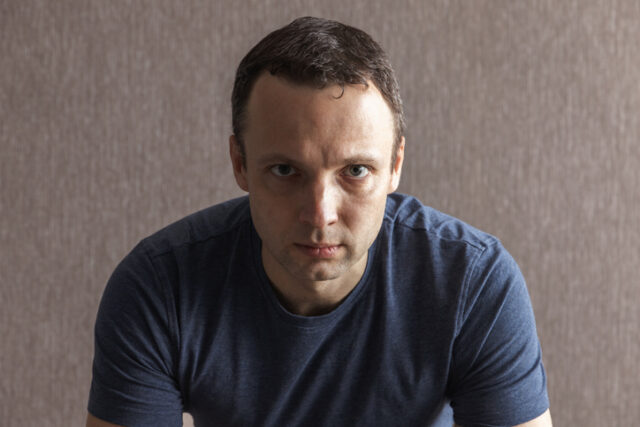There’s been a huge uptick in diagnoses of adult ADHD and autism in recent years, but not everyone who’s neurodivergent has it confirmed by a doctor.

All humans think a bit differently, but neurodivergence is a unique way of living, working, and processing that sets you apart from the main part of the population. If you experience these things on a regular basis, you may have one of the conditions that falls under the neurodivergent label — if you think you might, why not contact your GP to explore it further?
1. You create elaborate systems for simple tasks.

You might have a very specific way of loading the dishwasher or organising your closet that seems overly complex to everyone else but makes perfect sense to you. Maybe you’ve created a colour-coded system for your email inbox that would rival a military operation, or you have exact steps for making your morning coffee that absolutely cannot be altered.
2. You experience time differently.

You either show up 30 minutes early or 10 minutes late — there is no in-between. Time feels like an abstract concept rather than a concrete thing. You might find yourself “time blind,” where five minutes and five hours somehow feel the same, or you hyperfocus on something only to emerge and realise the whole day has vanished.
3. You feel everything intensely.

Tags in clothing feel like torture devices. Certain sounds make you want to crawl out of your skin. Maybe you can’t stand the feeling of seams in socks, or particular food textures are completely off-limits. The world sometimes feels like it’s turned up to eleven when everyone else seems to be cruising at a comfortable five.
4. You have very specific interests.

When you get into something, you really get into it. Whether it’s Victorian door knobs, the history of pencils, or obscure Pokémon facts, you dive deep and emerge as an unexpected expert. These interests might come and go in waves, but while you’re in them, they’re all-consuming.
5. You process conversations differently.

You might need a moment to respond in conversations, or you process what someone said well after the conversation is over. Sometimes you might miss social cues that everyone else seems to catch naturally, or you take things literally when people are being metaphorical.
6. You think in patterns and connections.

Your brain constantly spots patterns that no one else picks up on. You might make unexpected connections between seemingly unrelated things, or you notice tiny details that other people overlook. It’s like your mind is always playing a game of connect-the-dots that only you can see.
7. You have unusual energy patterns.

You might go from being completely wired to utterly exhausted with no in-between. Social interactions might drain your batteries faster than others, or you might need specific conditions to recharge. Your energy levels don’t follow the typical 9-to-5 rhythm that society expects.
8. You struggle with change.

Even small changes to your routine can throw off your whole day. Maybe you get unusually stressed when your favourite coffee shop changes their menu, or you need time to mentally prepare for any deviation from your normal schedule. The unexpected feels more overwhelming than it perhaps should.
9. You experience executive function challenges.

Starting tasks feels impossible sometimes, even when you know exactly what needs to be done. You might struggle with organisation despite being intelligent, or find it hard to break big tasks into smaller steps. The phrase “just do it” feels like saying “just fly” to a penguin.
10. You have different social needs.

You might need more alone time than other people seem to, or you find small talk particularly challenging. Maybe you prefer one-on-one interactions to groups, or you feel most comfortable socialising while doing an activity rather than just sitting and talking.
11. You notice different details.

While everyone else is following the main conversation, you might notice the flickering light, the humming refrigerator, and the pattern on someone’s shirt all at once. Your attention might naturally drift to things that other people don’t seem to register at all.
12. You have intense focus abilities.

When something interests you, you can focus with laser-like intensity for hours. Time disappears, hunger becomes irrelevant, and the rest of the world fades away. But trying to focus on something that doesn’t grab your interest feels like trying to hold water in your hands.
13. You process information uniquely.

You might need to move to think, or draw to understand, or talk things through out loud. Perhaps you can’t just read instructions – — u need to physically do something to understand it. Your learning style might not fit neatly into traditional categories.
14. You experience emotional intensity.

Your emotional reactions might be more intense than those around you expect. Joy isn’t just happiness — it’s euphoria. Disappointment isn’t just sad — it’s devastating. You might feel emotions physically in your body in ways that other people don’t seem to understand.
15. You have different comfort zones.

Your idea of comfort might look different from others. Maybe you’re most relaxed when wrapped in a weighted blanket, sitting in a specific spot, or engaging in repetitive movements. What other people find soothing might be stressful for you, and vice versa.
16. You find unwritten rules challenging.

Social rules that other people seem to absorb naturally might feel like a foreign language to you. You might find yourself accidentally breaking social norms or being confused by unspoken expectations. It’s like everyone else got a rulebook you never received.




